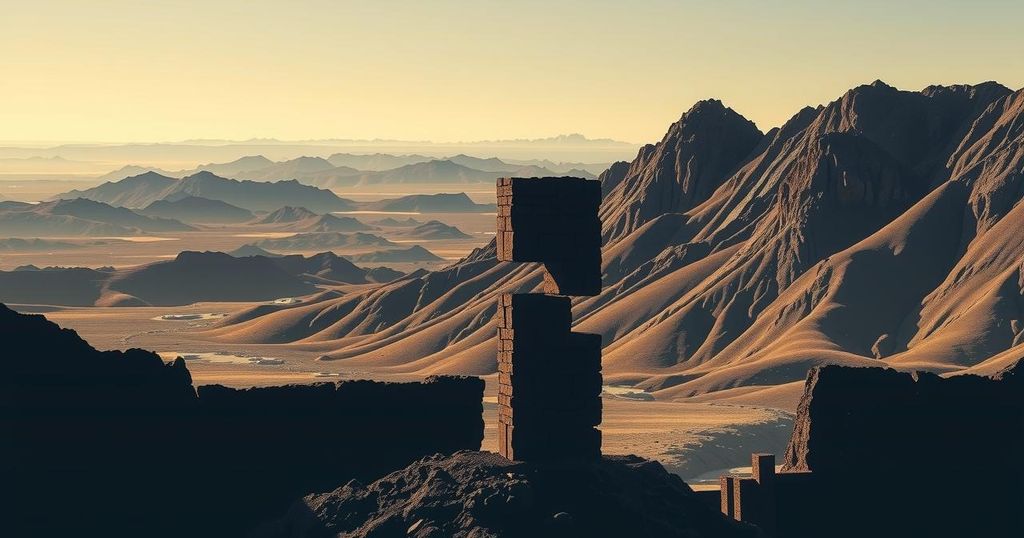Evidence of Rwandan Support for M23 Rebels Amid DR Congo Conflict

The Democratic Republic of Congo is experiencing intensified fighting as M23 rebels gain control in Goma, with protests against Rwandan President Kagame pointing to accusations of his support for the group. A UN panel asserts that Rwandan military is actively involved in training and equipping M23, further complicating regional tensions rooted in historical conflicts since the 1994 Rwandan genocide.
Protesters in the Democratic Republic of Congo’s capital, Kinshasa, have expressed their anger towards Rwandan President Paul Kagame by burning his portraits and tearing Rwandan flags. They accuse him of supporting the M23 rebels, a claim substantiated by a group of UN experts who assert that the Rwandan army possesses effective control over M23 operations, including training and equipping the rebel forces with advanced weaponry.
The city of Goma, strategically located at the eastern border with Rwanda and rich in minerals, has fallen predominantly into M23’s hands amid an escalating conflict. With the population having swelled to around two million due to displacement, the current violence has left the streets barren, with bodies scattered and crucial utilities down.
UN peacekeeping chief Jean-Pierre Lacroix has stated, “There was no question that there are Rwandan troops in Goma supporting the M23”, though the number of troops remains uncertain. Some Congolese soldiers are reported to have surrendered by crossing into Rwanda, suggesting the proximity of Rwandan forces to the conflict.
Despite Kagame’s persistent denial of Rwandan involvement with the M23 rebels, the International Crisis Group has indicated a shift towards justification of defensive measures rather than outright denial. The tension stems from the aftermath of the 1994 Rwandan genocide, leading to a persistent fear of Hutu militias operating across the border.
Furthermore, Kagame has publicly criticized Congolese President Félix Tshisekedi for inadequately addressing the threat posed by the FDLR rebel group, which maintains a presence in eastern DR Congo. Experts suggest that M23’s control over Goma serves as a power play for Kagame rather than a strategic necessities.
The M23, which seeks to advocate for the interests of Tutsi communities in DR Congo, has evolved from previous iterations which sought peace through disarmament. With a sophisticated training program reportedly employing Rwandan support, they have begun capturing strategic areas for mineral extraction, notably coltan, despite the peacekeeping mission’s limitations.
As M23’s strength and operations reflect substantial backing, recent analyses suggest the group has garnered $800,000 monthly from taxing coltan trade, raising concerns about Rwanda’s continued military support. Rwandan troops have been sighted among rebel fighters, contributing advanced weaponry including Israeli-made anti-tank weapons.
President Kagame has maintained his indifference towards UN reports detailing Rwandan support for M23, dismissing them as distractions from DR Congo’s internal issues. Negotiations mediated by the East African Community may focus on the FDLR, which remains central to Rwanda’s security narrative, reflecting Kagame’s insistence on the danger posed by militia groups in the region.
The struggle in the Democratic Republic of Congo is heavily influenced by historical tensions rooted in the Rwandan genocide. The rise of the M23 rebels and their alleged support from Rwanda complicates the ongoing conflict, particularly in eastern provinces rich in minerals. Understanding the geopolitical dynamics and the competing interests of regional powers is essential when analyzing the ongoing crisis and the stability of the region.
The conflict in eastern DR Congo reveals a complex web of historical grievances, ethnic tensions, and geopolitical interests. Rwanda’s alleged backing of the M23 rebels, despite denials from President Kagame, underscores the instability and violence afflicting the region. The capture of strategic territories, particularly rich in valuable minerals, suggests that this conflict is not merely about local control but also about the interplay between broader national security concerns and mineral wealth.
Original Source: www.bbc.com








